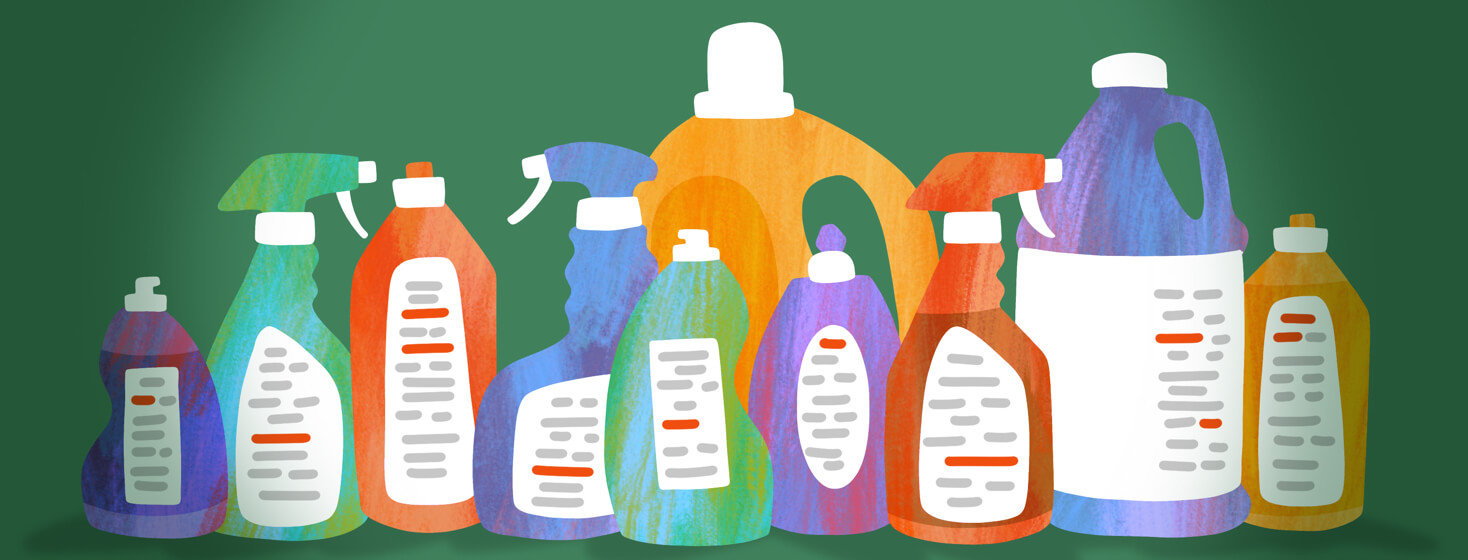What Do Product Labels Mean?
Many people with skin conditions are allergic to the ingredients in everyday household products. Triggers can include:
- Hand soap
- Dish soap
- Laundry detergent
- Shampoo
- Bubble bath
- Body wash
- Cleaners
What do different product terms mean?
The US Food and Drug Administration (FDA) requires that all cosmetics marketed to consumers have an ingredient list. Most of the time, product makers must list these ingredients separately. Fragrance is an exception.
Companies are allowed to list fragrance ingredients as just “fragrance.” That is because listing them separately could reveal a company’s trade secrets. Trade secrets are protected by law. Unfortunately, this makes it hard to know which chemical in a fragrance is triggering your psoriasis.1
You might notice other terms on the label and wonder what they mean. Here are some common ones:1-5
- Hypoallergenic: These products claim to cause fewer allergic reactions and be gentler on your skin than other products. But the federal government does not regulate the use of the term “hypoallergenic.” The company determines what it means.
- Organic: The US Department of Agriculture (USDA) defines the term “organic.” It certifies cosmetic, personal care, and body care products that meet the definition. If the USDA labels something “organic,” it is subject to rules outlined by the FDA. But just because a product is organic does not mean it is safe.
- Fragrance-free: These products can still have fragrance chemicals. But they must be used for a reason besides masking strong smells.
- Unscented: An unscented product may still have a fragrance and chemicals that could irritate your skin. The product makers may add some fragrance to mask the scent of other ingredients, but not enough that you can smell it.
- Green: There is no FDA definition for this term. In general, it means the product is sustainable, eco-friendly, and could be made with recycled materials.
- All-natural: Products with “all-natural” on the label may not have artificial or processed ingredients or preservatives. However, there is no official definition of this term used by the FDA.
Keep in mind that the FDA classifies any product that claims to treat or prevent disease as a drug. This means it regulates cosmetics that make these claims.6
General guidelines for choosing skin-care products
It can be hard to know which products will set off a flare-up of your psoriasis. Here are some tips:5
- The fewer ingredients, the better.
- Watch out for products with your known triggers on the label.
- Try out new products on a small, healthy area of skin.
- Follow the product’s label instructions.
When reading product labels, watch out for these ingredients and some of the products they are found in:7
- Formaldehyde (household disinfectants, glues, adhesives)
- Isothiazolinone (baby wipes and other personal care products)
- Cocamidopropyl betaine (shampoos and lotions)
How to look up ingredients
If you are worried that a product could worsen your psoriasis, there are websites to help. They have information about different products’ known toxic effects:7
- Environmental Working Group’s Skin Deep Database
- Cosmetic Ingredient Review
- National Eczema Association Product Directory

Join the conversation